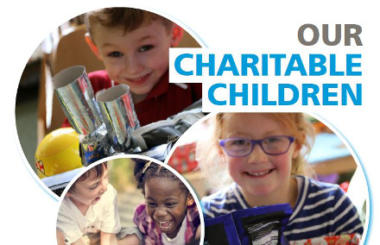Young children between four and eight understand the ideas behind charities and should be given more autonomy in choosing which charities to support, according to a report from the University of Kent.
Researchers for Kent's Engaging Children in Charities and Charitable Giving report talked to over 150 young children and found that around a fifth had actively engaged in charitable giving decisions and had begun to question the motivations of giving and the impact.
Over half of the children involved in the report had some basic knowledge and awareness of charities, but a very limited understanding of why, where the money goes and how it is used.
One third had a more developed understanding of charity and could connect their ideas about causes with activities and with charities they had been involved with.
The report says current practice often uses children for “tokenistic decoration”, but while they enjoy dressing up for Pudsey or putting on a red nose they have an undeveloped understanding about the cause.
Dr Alison Body, a member of the Centre for Philanthropy at Kent and co-author of the report, said: “It's great that children are so heavily involved in charitable events, but the research shows more needs to be done to help them play an active role in the sorts of causes and charities they help support, whether at school or at home.
“This early active engagement can have a life-long impact on how they understand and engage with charities and philanthropy more generally.”
Young children should explore perceptions and preferences
The report calls for a shift to encourage young children to explore their perceptions and preferences in charity and charitable giving.
The children involved in Kent University's research could name the most media-driven and current charity campaigns, including Children in Need, Comic Relief and the Poppy Appeal, as well as traditional harvest-time donations.
When offered £100 to donate to charity, the largest number of children chose those that relieved human suffering like homelessness or poverty.
Wildlife charities were also popular, with over a quarter choosing to donate their theoretical funds here, and another quarter chose to give to charities supporting children and young people.
Only 12 per cent chose to donate to medical research charities and 7 per cent to international relief charities, which are areas where researchers said children lack as much direct experience.
|
Related articles












